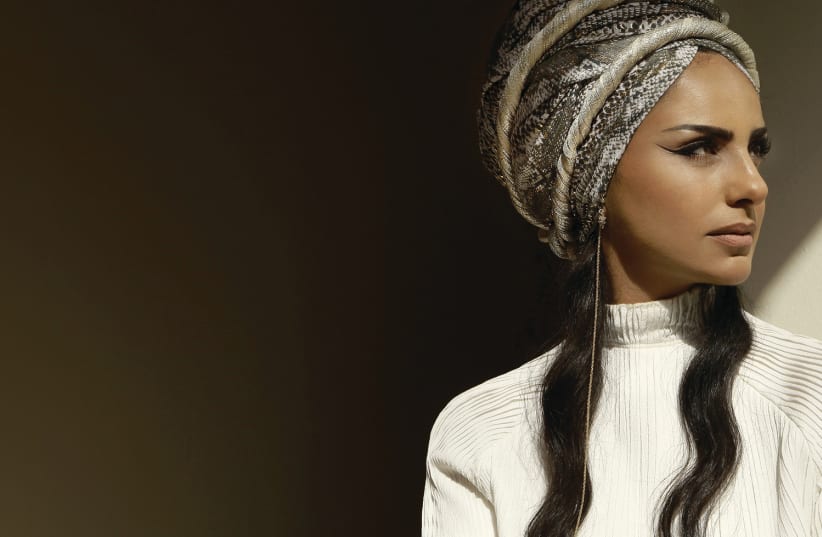The 8th edition of the annual event takes place at the music department of Bar-Ilan University February 25-27. Artistic director, musicologist and musician Dr. Yuval Rabin has culled an impressively eclectic sweep of subgenres and cultural subtexts in a program that takes in concerts, a seminar, workshops and lectures.
Cantorial music is clearly of central importance to the festival domain, with the multicultural seminar program featuring talks by veteran cantor and musicologist Prof. Eli Schleifer, ethnomusicologist Dr. Naomi Cohn-Zentner, who specializes in Ashkenazi music, and Rabin himself. In fact, the latter notes that there is another slot that references that particular area of liturgical fare.
At the end of the festival, there is an introductory talk, by Dr. Liran Gurkevitz, ahead of the From Germany to Israel concert, which includes works by 19th-century Jewish Polish-German composer Louis Lewandowski and Felix Mendelssohn, with seminal Israeli composer Paul Ben-Haim’s Kabbalat Shabbat serving as the centerpiece. Gurkevitz is a well-known researcher of Ben-Haim’s oeuvre.
Principal theme notwithstanding, Rabin says the attendees will get a wide range of informational input for their money.
“I will concentrate on cantorial music per se, but there will be lots of other areas covered. Naomi Cohn-Zentner will talk more nussah,” he explains, referencing textual and melodic versions of liturgical material used by communities from different parts of the world.
Meanwhile, Schleifer will enlighten his audience about a cantorial tour de force of the Jewish liturgical calendar.
“Eli will talk about Malchuyot, Zichronot Veshofarot (Kingdoms, Memories and Shofars), which is the Rosh Hashanah Mussaf service,” Rabin says. “It is one of the main passages when the cantor can really show what he is made of, musically.”
The lectures will be followed by a rendition of Kabbalat Shabbat, the first performance of the 1966 work, in its entirety, in Israel.
There are plenty of cultural bases covered during the course of the three-day program, including an opportunity to hear some of the enticing liturgical sounds that originate from the Caucasus mountains, at a workshop presented by Dagestan-born leading musician and musicologist Piris Eliyahu.
Andalusian liturgical music features in the opening session, with talks by Moroccan-born composer and musician Dr. Avi EilamAmzaleg, and liturgical singer Rabbi Yossef Ben Hemo, about bakashot prayers which are traditionally sung by Sephardi Jews of various stripes at synagogue sessions that begin before sunrise.
Ladino material is also in the programmatic mix, with a lecture by Hebrew University researcher Rivka Havassy, while singer Neta Elkayam, whose grandparents hail from Casablanca, will perform a tribute to 18th-century Moroccan poet and liturgical scribe Rabbi David Ben Aharon Ben Hassin. Elkayam, along with husband Amit Hai Cohen, will offer a more contemporary reading of the original material, seasoned with electronic beats.
And if all that is not quite sufficiently variegated for your musical palate, you will be able to get into some jazz-fueled Jewish Ethiopian roots music, courtesy of veteran Ethiopian-born saxophonist-vocalist Abate Berihun.
If you attended the last Jerusalem Jazz Festival, in December, you might have caught Berihun’s entertaining gig there, along with his dynamic and fun quartet of pianist Roi Mor, bassist David Michaeli and drummer Nitzan Birnbaum.
Abate is an accomplished jazz musician but is also steeped in the spiritual musical delivery of the kessim – kohanim – of his country of birth. Add to that a rich helping of groove and blues, and you end up with a heady mix of textures and rhythms.
There’s even more. Musicologist-writer Shmuel Zivan will open the last day of the festival with tales of late soulful troubadour Rabbi Shlomo Carlebach, who Rabin says “changed the whole approach to synagogues services.”
Singer Maureen Nehedar will provide some insight into her Persian musical roots, while Narkis will add pop-oriented energy to the musical proceedings.
At the end of the day, Rabin would like us to leave the university event with a much broader picture of what Jewish music incorporates.
“We will provide [Hebrew language] booklets for everyone, with explanations and lyrics,” he says. “I hope the visitors will have a rich and informative experience at the festival, and come away feeling wow! I didn’t know there was Jewish music like that. I think, and hope, everyone will have an emotionally moving and intellectually enriching time.”
For tickets and more information: (03) 531-7959 and dahan.center@biu.ac.il
